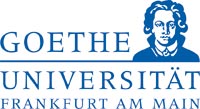Detailed insight into stressed cells

When cells are stressed, they initiate a complex and precisely regulated response to prevent permanent damage. One of the immediate reactions to stress signals is a reduction of protein synthesis (translation). Until now, it was difficult to measure such acute cellular changes. As reported in the latest online issue of the renowned journal Molecular Cell, researchers at Goethe University have now developed a method overcoming this hurdle.
The team led by biochemist Dr. Christian Münch, who heads an Emmy Noether Group, employs a simple but extremely effective trick: when measuring all proteins in the mass spectrometer, a booster channel is added to specifically enhance the signal of newly synthesised proteins to enable their measurement. Thus, acute changes in protein synthesis can now be tracked by state-of-the-art quantitative mass spectrometry.
The idea emerged because the team wanted to understand how specific stress signals influence protein synthesis. “Since the amount of newly produced proteins within a brief time interval is rather small, the challenge was to record minute changes of very small percentages for each individual protein,” comments group leader Münch. The newly developed analysis method now provides his team with detailed insight into the molecular events that ensure survival of stressed cells. The cellular response to stress plays an important role in the pathogenesis of many human diseases, including cancer and neurodegenerative disorders. An understanding of the underlying molecular processes opens the door for the development of new therapeutic strategies.
“The method we developed enables highly precise time-resolved measurements. We can now analyse acute cellular stress responses, i.e, those taking place within minutes. In addition, our method requires little material and is extremely cost-efficient,” Münch explains. “This helps us to quantify thousands of proteins simultaneously in defined time spans after a specific stress treatment.” Due to the small amount of material required, measurements can also be carried out in patient tissue samples, facilitating collaborations with clinicians. At a conference on Proteostatis (EMBO) in Portugal, PhD student Kevin Klann was recently awarded with a FEBS journal poster prize for his presentation of the first data produced using the new method. The young molecular biologist demonstrated for the first time that two of the most important cellular signaling pathways, which are triggered by completely different stress stimuli, ultimately results in the same effects on protein synthesis. This discovery is a breakthrough in the field.
The project is funded by the European Research Council (ERC) as part of Starting Grant “MitoUPR”, which was awarded to Münch for studying quality control mechanisms for mitochondrial proteins. In addition, Christian Münch has received funding within the German Research Foundation’s (DFG, Deutsche Forschungsmeinschaft) Emmy Noether Programme and is a member of the Johanna Quandt Young Academy at Goethe. Since December 2016, he has built up a group on “Protein Quality Control” at the Institute for Biochemistry II at Goethe University’s Medical Faculty, following his stay in one of the leading proteomic laboratories at Harvard University.
Further information:
Dr. Christian Münch, Institute for Biochemistry II, Faculty of Medicine, Goethe University, Tel.: +49 69 6301-6599, ch.muench@em.uni-frankfurt.de.
Publication:
Klann K, Tascher G, Münch C. Functional translatome proteomics reveal converging and dose-dependent regulation by mTORC1 and eIF2α. Molecular Cell 77, 1-13, Feb 20, 2020. doi.org/10.1016/j.molcel.2019.11.010
Current news about science, teaching, and society can be found on GOETHE-UNI online (www.aktuelles.uni-frankfurt.de)
Goethe University is a research-oriented university in the European financial centre Frankfurt am Main. The university was founded in 1914 through private funding, primarily from Jewish sponsors, and has since produced pioneering achievements in the areas of social sciences, sociology and economics, medicine, quantum physics, brain research, and labour law. It gained a unique level of autonomy on 1 January 2008 by returning to its historic roots as a “foundation university”. Today, it is one of the three largest universities in Germany. Together with the Technical University of Darmstadt and the University of Mainz, it is a partner in the inter-state strategic Rhine-Main University Alliance. Internet: www.uni-frankfurt.de
Publisher: The President of Goethe University Editor: Dr. Anke Sauter, Science and Humanities Editor, International Communication, PR & Communication Department, Theodor-W.-Adorno-Platz 1, 60323 Frankfurt am Main, Tel: +49(0)69 798-13066, Fax +49(0)69 798-761 12531, sauter@pvw.uni-frankfurt.de
Dr. Christian Münch, Institute for Biochemistry II, Faculty of Medicine, Goethe University, Tel.: +49 69 6301-6599, ch.muench@em.uni-frankfurt.de.
Klann K, Tascher G, Münch C. Functional translatome proteomics reveal converging and dose-dependent regulation by mTORC1 and eIF2α. Molecular Cell 77, 1-13, Feb 20, 2020. doi.org/10.1016/j.molcel.2019.11.010
https://aktuelles.uni-frankfurt.de/englisch/biochemsitry-researchers-at-goethe-u…
Media Contact
All latest news from the category: Life Sciences and Chemistry
Articles and reports from the Life Sciences and chemistry area deal with applied and basic research into modern biology, chemistry and human medicine.
Valuable information can be found on a range of life sciences fields including bacteriology, biochemistry, bionics, bioinformatics, biophysics, biotechnology, genetics, geobotany, human biology, marine biology, microbiology, molecular biology, cellular biology, zoology, bioinorganic chemistry, microchemistry and environmental chemistry.
Newest articles

Innovative vortex beam technology
…unleashes ultra-secure, high-capacity data transmission. Scientists have developed a breakthrough optical technology that could dramatically enhance the capacity and security of data transmission (Fig. 1). By utilizing a new type…

Tiny dancers: Scientists synchronise bacterial motion
Researchers at TU Delft have discovered that E. coli bacteria can synchronise their movements, creating order in seemingly random biological systems. By trapping individual bacteria in micro-engineered circular cavities and…

Primary investigation on ram-rotor detonation engine
Detonation is a supersonic combustion wave, characterized by a shock wave driven by the energy release from closely coupled chemical reactions. It is a typical form of pressure gain combustion,…



